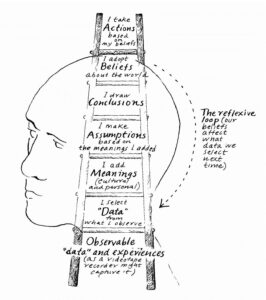Feb
22
The “Others” in Our Communities
February 22, 2024 | | Leave a Comment
In the United States, the people who tend to be treated more as “outsiders” through the law or by social treatment are immigrants and refugees, members of the LGBTQ+ community, racial and religious minorities, people with disabilities, single parents, low-income communities, and the elderly. In my college more specifically, the “outsider” dynamic may show up when viewing international students, LGBTQ+ individuals, those of a different race or religion, or members of a political party or social movement. They are each commonly seen as a monolith instead of individuals. Oftentimes one may assume they all feel the same about a topic, not acknowledging the great diversity of viewpoints within a single group. Our identities as humans are complex, and sometimes our different facets can overlap in contradictory ways. It’s easy to assume anyone who is a racial minority or LGBTQ+ will vote for the Democratic party or that someone from the rural south would vote for the Republican party, for example. But people’s reasons for their voting behavior are very complex.
On a greater scale, viewing other countries as monolithic “others” in world politics can lead to poorer policy decisions. When assuming how people in another country feel about things, we can ignore the complex factors that lead them to feeling how they do. A common identity that one thinks of when one thinks of residents of the Middle East is Islam. However, there are a great variety of sects within Islam, religious minorities in the Middle East, and other personality factors that lead to a more diverse Middle East than one might imagine. It is important to take a holistic view of a nation or region in dealings with them, or risk great misunderstandings. In previous U.S. dealings with Middle Eastern countries, there have been attempts to put in place governments that would benefit the United States, without fully considering the implications for the people in these countries. Generalizing people from another region can and has led to dehumanizing and discrimination. It can be hard to find common ground with people one sees in a monolithic way.
